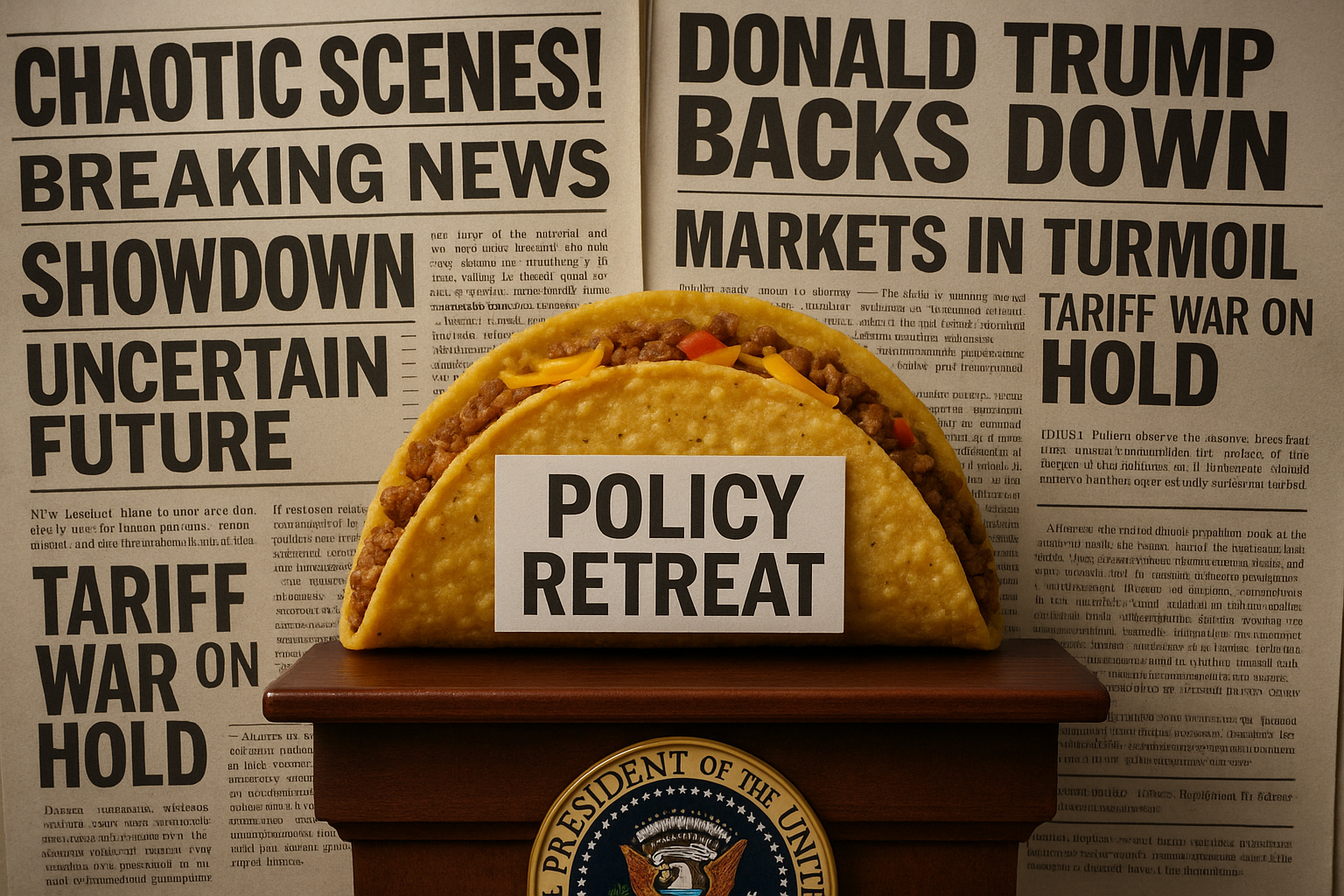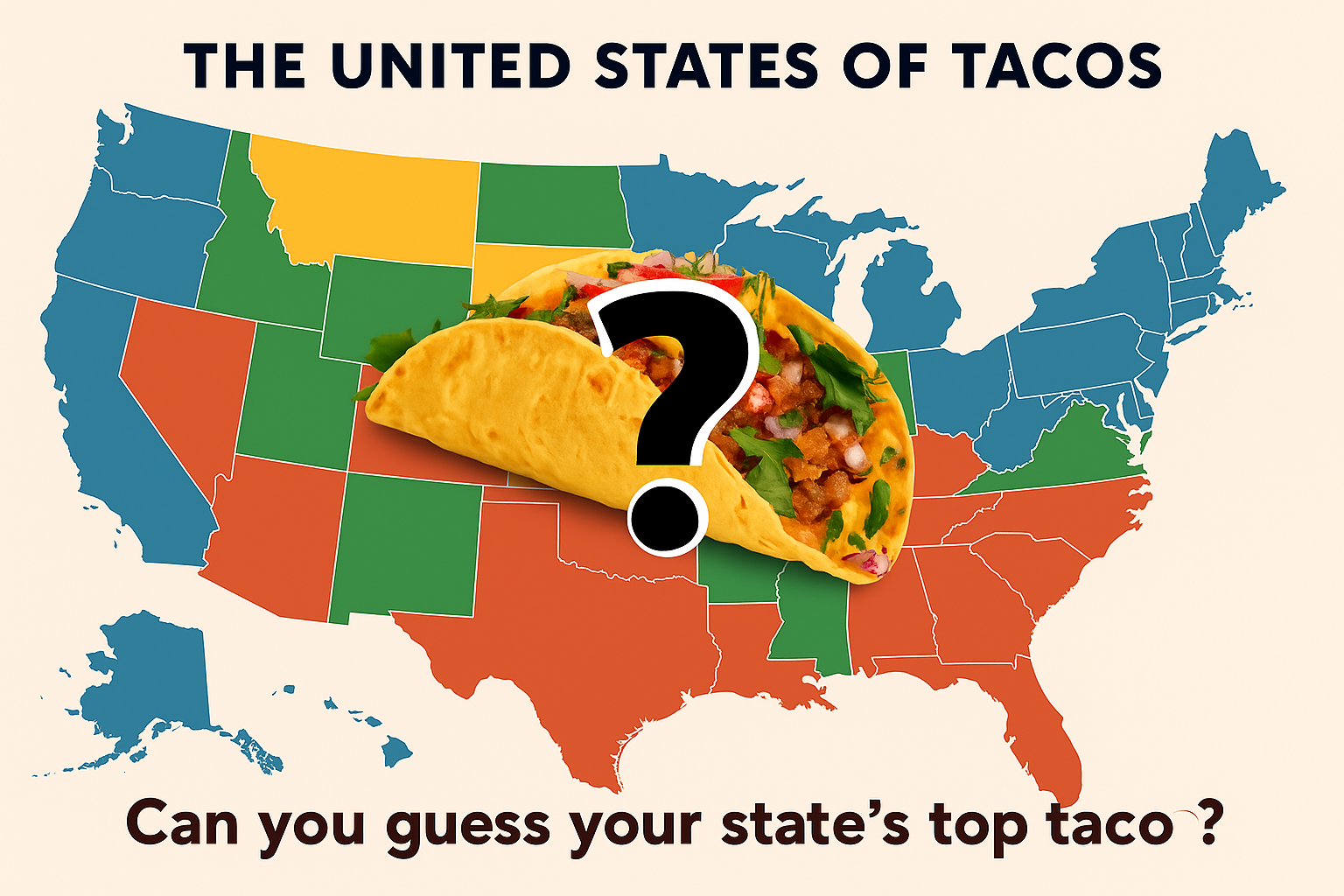What Does TACO Mean?
TACO, short for “Trump Always Chickens Out,” is a sharp acronym that gained traction to describe Donald Trump’s recurring pattern of making extreme public threats—especially on trade and policy—only to quietly back away when faced with real consequences. The term originated in financial circles, where investors noticed a consistent cycle: Trump would issue a fiery threat, markets would react, and soon after, he would retreat or soften his stance.
The term was coined by Financial Times columnist Robert Armstrong May 2, 2025 in the publication’s Unhedged newsletter. It quickly caught fire in both finance and political media. The acronym became even more popular after a May 28 press conference, where Trump was directly asked about the term by CNBC White House correspondent Megan Cassella. He appeared visibly irritated, dismissed the question as “nasty,” and claimed to have never heard of it. His defensive response only helped the meme go more viral.
How TACO Became a Wall Street Strategy
The financial world didn’t take long to adopt “TACO” as a serious, actionable concept. Investors began referring to a “TACO trade,” a strategy based on the expectation that Trump would announce bold economic threats—such as high tariffs or restrictions—and then back down before those threats took full effect. This created predictable dips and rebounds in the markets that savvy traders began to exploit.
For instance, after Trump threatened to impose a 50% tariff on European cars, markets briefly sank. But when he delayed the implementation and signaled possible negotiations, they quickly recovered. Observers noted that this was not a one-off event. Armstrong wrote that markets had learned the administration was highly reactive to economic pressure and would avoid pushing through any move that caused lasting damage. Thus, a strategy emerged: short the market during the announcement, then buy back in as Trump walked it back.
Lawmakers and government ethics experts have also raised concerns and called for investigations about market manipulation and insider trading by administration insiders and Trump family members who could use prior information to play the market for profit (ProPublica, Intelligencer).
TACO and the Authoritarian Illusion
What started as market commentary has since taken on broader political significance. The TACO meme speaks to more than just one leader’s unpredictability; it exposes a pattern often associated with authoritarian figures. Leaders who lean toward authoritarianism frequently rely on a performance of strength. They issue sweeping threats, dominate headlines, and try to intimidate institutions or foreign governments. However, when these threats are consistently not followed through, it erodes the aura of control and decisiveness that such leaders depend on to maintain their image.
TACO has become a shorthand critique not only of Trump’s policymaking style but of the theatrical strongman persona itself. By highlighting the repeated backpedaling behind his dramatic declarations, the meme deflates the myth of Trump as an unwavering force. The concept invites deeper scrutiny of how spectacle is often mistaken for leadership, and how media-savvy bluffing can mask a lack of real strategy or follow-through.
The Best of TACO Memes
As the term gained momentum, it quickly became a meme in the truest sense of the word—spreading rapidly through social media and transforming into cultural shorthand. The internet responded with an avalanche of satirical content. Here are some of the most shared so far:
Why This Meme Might Actually Matter
Memes may seem superficial, but they increasingly shape political discourse. They act as accelerants for ideas that might otherwise take pages of policy analysis to convey. TACO works because it’s concise, repeatable, and rooted in observed behavior. It makes a pointed critique of Trump’s leadership without needing to cite a single footnote. And in doing so, it disarms one of the central tools of authoritarian performance: the myth of strength.
Rather than confronting Trump’s persona head-on with dry analysis or outrage, TACO undermines it with ridicule and pattern recognition. It shows that people are not only watching but keeping receipts. And once a perceived strongman is associated with weakness—especially weakness dressed in satire—it becomes harder for that persona to command the same loyalty, fear, or obedience.
This post may contain affiliate links. If you make a purchase through one of these links, GLAKTAK may earn a small commission at no extra cost to you. We only recommend products we genuinely believe in.








